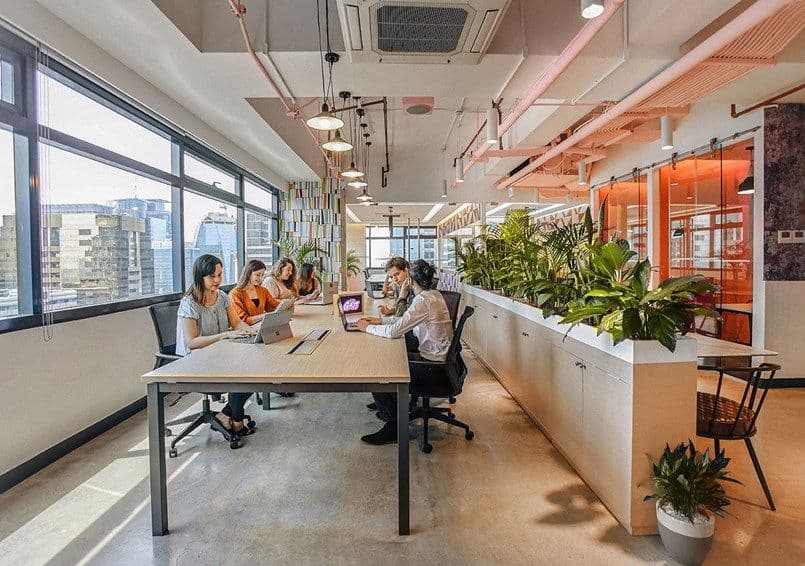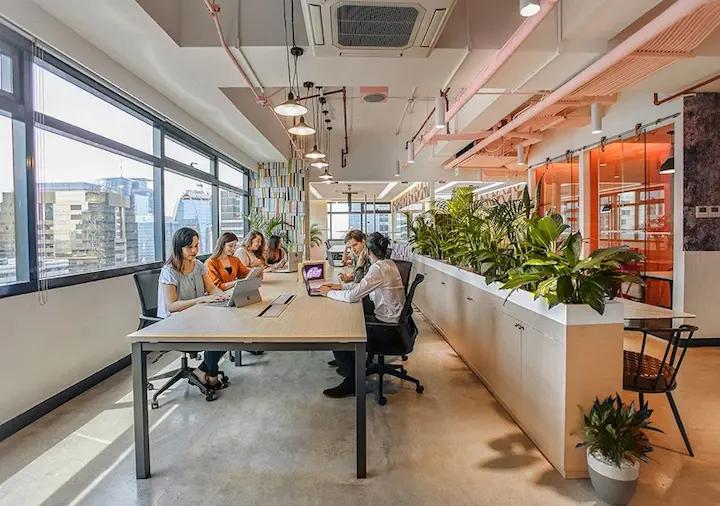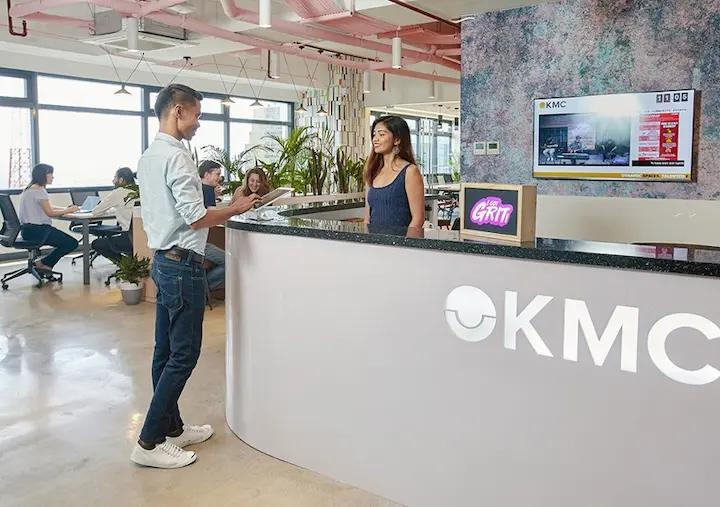4 Different Types of Serviced Office Spaces in the Philippines
By Marella Gimenez | 12/16/2019

Serviced office spaces have seen an upward trend throughout the years since its conception in 2005, and the niche industry have shown no signs of slowing down given its forecast for the next few years. The market now has an estimated worth of $26 billion dollars with nearly 19,000 flexible spaces and 1.7 million members worldwide. Researchers project that the total office take-up of flexible workspaces will expand to about 10-20% by 2030, in comparison to the 2% today.
When the concept was first introduced into the real estate scene, it brought in some excitement and enthusiasm into what had conventionally been a fairly stagnant industry. It quickly turned into the fastest growing sector in office demand over the past five years, catching traditional landlords by surprise. The quick acceptance of coworking by millennials, who make up a bulk of the current workforce, revolutionized the commercial real estate market, introducing more flexibility into its terms.
Originally designed as a hub for freelancers and startups, with 41% of its occupiers coming from the gig economy, Deskmag’s Coworking research shows that corporate occupiers come in a close second. Over 36% of coworking occupiers come from bigger, more established companies proving that flexible workspaces are indeed flexible in terms of providing for the needs of different kinds of workers.
The biggest coworking market is currently in Southeast Asia, expanding at a rapid rate because of its fast-growing economies and tech-savvy and quickly growing population. The booming startup ecosystem and vibrant culture of these countries are also fast tracking the growth of the shared office industry and fueling the demand in emerging market cities, such as Manila, Cebu, Jakarta, Kuala Lumpur, Singapore, and Ho Chi Minh City.
Manila, having several CBDs located around the metro and Filipinos pursuing more entrepreneurial endeavors, makes it the best environment for coworking to thrive. Both domestic and international brands have entered the coworking industry in the country with several office space providers operating in major business central districts such as Makati, BGC, and Ortigas. BGC alone currently has 33,800 sqm dedicated to coworking spaces while Makati has 19,600 sqm.
To better understand their benefits and advantages, here are the types of flexible office spaces they offer:

What is it?
- Hot Desks – offer flexible short-term leases for the use of individual desks or workstations in an open space. It operates on a first-come, first-served basis, giving workers the freedom to work at any time anywhere with plugs, outlets, and desks spread throughout the site. Having first gained popularity due to its progressive and creative office design, coworking spaces are also commonly known to have grade A facilities and amenities. It is now the standard for most coworking providers to provide coworkers free flowing coffee, excellent tech support and IT services, along with other additional amenities such as gyms, wellness centers, clinics, and entertainment/breakout areas.
- Dedicated Desks – a dedicated desk is exactly that, a desk dedicated and reserved to only one person. Unlike hot desks that are based on availability, there is already an assigned workstation awaiting the user in the open plan area. This service also often includes a lockable storage cabinet or locker for their personal belongings so that there is no need to pack everything up at the end of the workday. Although it is a bit pricier than a Hot Desk, workers have the convenient advantage and security of leaving their things behind during their rental stay and will always have a guaranteed spot in the coworking space.
Best Suited for: freelancers, entrepreneurs, startups, and small companies
Because there are low upfront fees, these spaces greatly work for employees who can’t yet afford their own permanent office space but still want a stable working environment. This gives them other options besides cafes and coffee shops, and places them in a more collaborative atmosphere. Sharing a space with several other people from different companies opens them up to networking opportunities, along with other organized events, panel discussions, and happy hours curated by the coworking provider.
Advantages:
- Hot Desks – low costs, collaborative & stable working environment, flexible work hours, plug-and-play simplicity
- Dedicated Desks – guaranteed spot/workstation, security for private belongings
What is it?
Flexible workspace providers who offer private offices can scale from a single person office to a whole floor with several offices and meeting rooms. The most important thing is that the space, no matter the size, is lockable, offers privacy, and is only exclusively accessed by the people who work there. These spaces usually come fully furnished with IT services, administrative support, and their own reception area, giving it a ready-to-move-in simplicity. Although this service provides more privacy, workers still have access to the communal areas of the coworking space, not leaving them completely secluded.
Best suited for: small teams, medium-sized enterprises, big companies or corporations, multinationals
When smaller companies or startups have grown their businesses, they normally graduate to a private office which offers more privacy, space, and services for their growing team. Because of the flexible lease terms and ready-to-move-in convenience, bigger enterprises and private companies have entered the fray as well. This gives them the ability to focus on their core business processes while the flexible workspace provider manages their office for them.
Advantages: privacy and security, additional administrative and IT support, ready-to-move-in simplicity

What is it?
This service provides anyone with business assistance and a reputable work address to put alongside their business, without the actual physical office space. Other resources include providing a landline phone number, call-answering and message-taking, mail handling, and IT support all exclusively supplied by serviced office centers or coworking operators. A virtual office’s main goal is to add more legitimacy to a business that might not have a space of their own.
Best suited for: work-from-home employees, freelancers, entrepreneurs, small businesses
Virtual offices are perfect for employees who work from the comfort of their own home but may want to entertain clients’ or colleagues’ inquiries in a more professional setting. Therefore, loaning a work address and landline to smaller enterprises and individuals lend more credibility to their business.
Advantages: remote administrative and IT support, credibility, low costs

What is it?
With the growing demand of flexible workspaces from bigger enterprises, these providers now offer customized office spaces for private companies that may want a unique suite, specialized floor, or a one-of-a-kind headquarters to better accommodate bigger teams. Though the coworking operators still manage and facilitate the space for them, it will have the company’s image and branding with their preferred office layout. These offices are often completely separated from the coworking space or are located entirely on a different floor with their own reception, function rooms, pantry, and IT infrastructure provided by the operator.
Best suited for: big companies or corporations, medium to large-sized enterprises, multinationals
Bigger companies often avail of this service because of the convenience of its ready-to-move-in workspaces that are designed to their specifications. They can instantly house bigger teams without having to wait long periods of time or getting bound to building contracts, making it attractive to bigger-scale businesses. Companies that may already have their own offices also find this to be a quick solution for satellite office locations with refreshed office design.
Advantages: ready-to-move-in simplicity, own amenities, administrative and IT support, own company branding